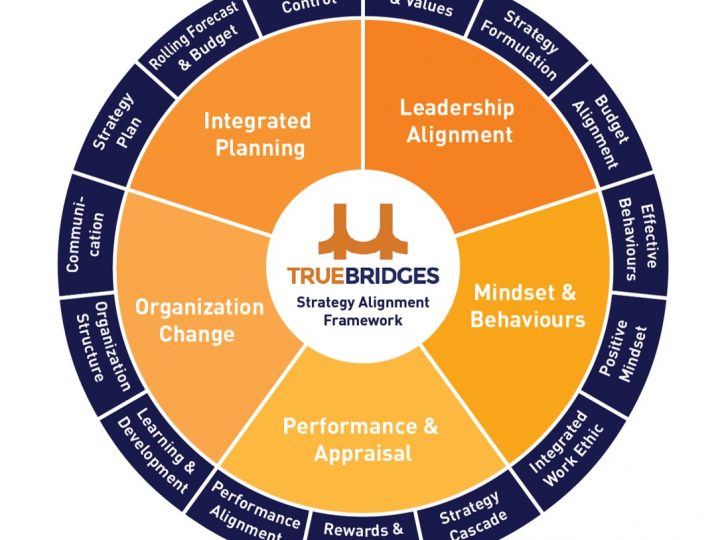
Mental Toughness is a personality trait which is emerging as the key to understanding how people respond to and perform under stress, pressure and challenge. Mental Toughness explains up to 25% in the variation of an individual’s performance. It is also a significant factor in individual and team well-being.
The FMCG industry where I worked for many years is under continuous stress and pressure and has many challenges amongst which:
- Margins are under pressure due to increasing costs and private label competition. For some multibillion $ businesses there is hardly anything left at the bottom line, let alone paying a decent return on capital to investors. How long can they last?
- The pace of mergers, acquisition and re-organizations remains relentless. In my last 3 roles in FMCG I participated in a private equity take over, 3 mergers and about 8 organization changes. It takes years for some of these business to get their culture, organization and performance up to speed again.
- Innovation pressure, due to an increasingly aware and savvy on-line and mobile consumer. Shortening lifecycles and growing customer demands and pressure due to private labels. This often results in growing, almost unmanageable brand and product portfolios and major new product write offs.
- Employees who have to deal with different time zones, new IT systems, management and organization changes, multiple cultures and behaviours whilst they have to communicate effectively across functions, solve problems, innovate and balance their personal life.
At a macro level, we see that Australian labor costs are increasing, but productivity is lacking behind. Whole industries like automotive are leaving the country due to lack of competitiveness. Although interest rates are historically low, business investments remains tights because a lack of confidence.
This all results in protective and milking strategies, rather than blue sky or blue ocean thinking. The often heard excuse from executives is that this lack of confidence, risk taking and investment is due to political uncertainty. But is this true?
Confidence, change and risk appetite are also personal traits and attributes from Mental Toughness. They can be measured and improved on individual and organizational level.
Mental Toughness explained
Mental toughness has been used in elite sport psychology for over 30 years to increase performance. It was first defined in 1995 by performance psychologist Dr. Jim Loehr as ‘the ability to consistently perform towards the upper range of your talent regardless of competitive circumstances’.
Mental Toughness can be measured on individual and team level. Professor Peter Clough developed the MTQ48, the world’s first valid and reliable psychometric questionnaire for Mental Toughness.
Clough is chair in Applied Psychology at Manchester Metropolitan University and a world-leading academic in applied psychology. The on-line 48 question survey is easy and take less than 10 minutes to complete.
Mental Toughness measures four components:
- Commitment: I promise to do it. I’ll set a goal and do whatever it takes to deliver
- Control: I really believe I can do it. I keep my emotions in check when doing it.
- Challenge: I’m driven to do it, I will take a chance and acceptable risk. Setback make me stronger.
- Confidence: I believe I have the ability to do it. I can stand my ground if I need to.
Mental Toughness is more than grit and more than resilience which is only reactive. Mental Toughness adds pro-active attributes to seek change and take risks with confidence.
Mentally Tough individuals and teams look forward to challenges, take chances and acceptable risk. They have self-worth, stay confident and focused on their tasks and deal positively with setbacks to deliver on their commitments. They understand other’s emotions and keep their own emotions in check. Mentally Tough individuals bring their A game to work every day and learn from their mistakes.
Developing Mental Toughness in FMCG
Can Mental Toughness be developed in your organization? Yes it can! A business will go through a four step change cycle to build the Mentally Tough organization:
- Understanding: create organization understanding of the concept of Mental Toughness. Learn the definition, its history and its application and explore how it helps to deliver the value proposition and day to day life of employees.
- Awareness: take the MTQ48 survey, understand your Mental Toughness and your individual and team strengths and improvement opportunities.
- Acceptance: accept the results. This requires ongoing reflection, feedback and exploration. A coach can help to build confidence and readiness to find intrinsic motivation to take the next step. Understand tools and techniques to improve Mental Toughness for the next step.
- Action: aspire to become more Mental Tough set goals to commit to change mindset and behaviours to improve Mental Toughness. Hold yourself accountable or use a coach to do so.
An organization can take this further and set soft targets to improve some attributes or can consider integrating this in individual performance settings, development plans and recruitment policies. In our Volatile Uncertain Complex and Ambiguous world Mental Toughness is becoming a key organizational capability.
History tells us, that the pace of change and challenges will only increase in the future. Don’t wait and watch your competitor build a more resilient, confident and up for challenge FMCG business that outperforms you.
——
Niels is an AQR accredited master trainer in Mental Toughness. If you want to participate with your team in a Mental Toughness workshop, you can contact him at niels@truebridges.com or download the brochure here.




